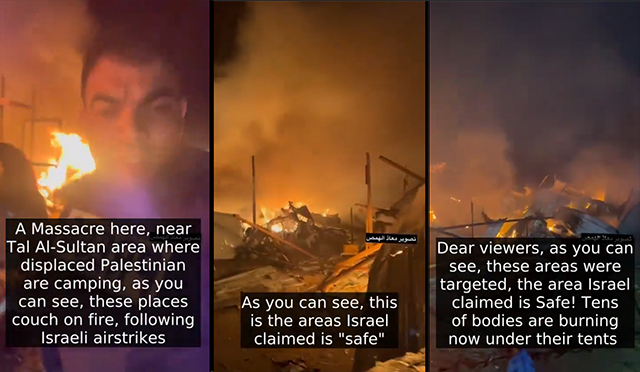Hollywood Child Protection Act Ignored: Here’s Why It Is Important
from Disobedient Media:
 One of the key California laws designed to protect child actors from sexual predators has gone largely ignored and unenforced since it was enacted five years ago. The law requires publicists, managers, acting coaches and headshot photographers who work with child actors to be fingerprinted and pass an FBI background check to screen out registered sex offenders. Only then will they be issued a Child Performer Services Permit.
One of the key California laws designed to protect child actors from sexual predators has gone largely ignored and unenforced since it was enacted five years ago. The law requires publicists, managers, acting coaches and headshot photographers who work with child actors to be fingerprinted and pass an FBI background check to screen out registered sex offenders. Only then will they be issued a Child Performer Services Permit.
A Deadline investigation, however, has found that not a single Hollywood publicist who represents child actors has obtained a permit. Dozens of managers, acting coaches and photographers who work with child stars have also failed to comply with the law, which is punishable by a year in county jail and a $10,000 fine. And yet, no one has ever been charged with breaking it.
The law, AB 1660, prohibits registered sex offenders from “representing or providing specified services to artists or performers under 18 years of age.” Fingerprints and FBI background checks are required to ensure that registered sex offenders don’t skirt the law by working under assumed names.
The law was enacted to keep men like Robert Villard from entering – or in his case, re-entering – the industry after being convicted of a sex crime. Villard, in fact, was the poster-pedophile the law specifically targeted: for many years, he was a publicist, manager, acting coach and photographer of child actors, some of whom would go on to become major movie stars. But he also had a long history of sex crimes against children. In 1987, he was convicted of possessing child pornography, but the conviction was overturned on appeal. He was arrested again in 2001 after a police raid of his home turned up thousands of photos of scantily clad boys in sexually suggestive positions. He pleaded no contest to a misdemeanor and was sentenced to three years’ probation.
Villard, who sometimes operated under the assumed name of Bob Moniker, continued to work with child stars until he was busted again in 2005, this time pleading no contest to committing a lewd act on a 13-year-old boy to whom he was giving acting lessons. He served seven years in prison and got out just before Gov. Jerry Brown signed AB 1660 into law in September 2012.
BizParentz co-founder Anne Henry, the lead sponsor of AB 1660, said that the law was designed to protect child actors from convicted pedophiles like Villard. “Before this, there was nothing to stop him from returning to the industry and starting the abuse cycle all over again,” she told Deadline. “We wanted something to prevent that from happening.”
Other examples:
Martin Weiss, a personal manager to many young stars, got out of jail shortly before the law went into effect, having severed six months after pleading no contest to two counts of oral copulation with an 11-year-old boy whose career he was managing. Like Villard, he too operated under fake names including Maximilian Weiss, Paul Weiss and Menachem Mendel. But if either of them tries to apply under a fake name for a permit to represent child actors again, their fingerprints will give them away.
Jason James Murphy, a convicted pedophile who’d already spent five years in prison for kidnapping and molesting an 8-year-old boy, was arrested just a few days after Weiss. After getting out of prison, Murphy came to Hollywood, where he worked as a casting assistant and acting coach for child actors. He was arrested in December 2011 for failing to use the name under which he was a registered sex offender, but the judge dismissed the case, saying that Murphy had not attempted to conceal his identity, even though he was working with children under the professional name of Jason James.
Brian Peck is another registered sex offender who the law was designed to keep away from child actors. Peck, now 57, was convicted in 2004 of performing a lewd act on a child and oral copulation of a person under 16. His victim was a young boy to whom Peck had been giving private acting lessons at his home. But after spending 16 months in jail, he returned to Hollywood and resumed his career as a dialogue coach for child actors – which the law now prohibits.
Those cases helped propel AB 1660 through the legislature and onto the governor’s desk for his signature. At the time, the bill’s author, Assemblywoman Nora Campos, said that “Under the existing law, talent agents are regulated; however, casting directors, managers and photographers are not. This loophole makes it very easy for a predator to gain access to children working within the entertainment industry.”
The bill had wide support. It was backed by the MPAA and by the Association of Talent Agents. SAG and AFTRA, pre-merger, were both behind it, too, and so were the Talent Managers Association and the Los Angeles City Attorney’s Office, among many other groups. The only opposition came from an organization called California Reform Sex Offender Laws – now the Alliance for Constitutional Sex Offense Laws – which lobbies for the rights of convicted sex offenders.
“We were very supportive of the legislation,” said Duncan Crabtree-Ireland, SAG-AFTRA’s COO and general counsel, “and we remain insistent that it was necessary. It’s clear that this applies to photographers, managers, coaches, and publicists, and we’d like to see that any of these types of professionals who work with child performers are registered, as is required by the law. We are going to reach out to the people who should be registered under this statute and make sure they are aware of their obligation to register.”
And it’s “distressing,” he said, that so many industry professionals have failed to register. “The whole point of having this in the first place was to insure that industry people who work regularly with children would be subjected to background checks.”
Hollywood’s publicists, however, haven’t gotten the message. A database maintained by the state’s Department of Industrial Relations lists 292 valid permit-holders who are legally allowed to work with child actors. It’s intended as a guide to parents, but a Deadline review of every permit-holder reveals that not a single publicist holds a Child Performer Services Permit.
Deadline has found more than 20 Los Angeles-based publicists who don’t have permits but represent child stars on numerous hit TV shows including Stranger Things, This Is Us, Modern Family, Black-ish, Lost in Space, Revenge and Code Black. Publicists without permits also represent young stars on Nickelodeon’sSchool of Rock, Henry Danger and Nicky, Ricky, Dicky & Dawn, and on the Disney Channel’s Stuck in the Middle and Raven’s Home. They also represented child actors on numerous films including Fences and the upcoming Bumblebee, to name but a few.
“Any manager, publicist, photographer or acting coach who provides services to minors is responsible for complying with the law, which requires them to have a permit,” said Paola Laverde, public information officer for the Department of Industrial Relations, which enforces the law. “If the Labor Commissioner’s office finds a violation or is alerted to businesses working with minors in violation of the permit requirements, it will pass on those names to the appropriate prosecuting agency.”
Among the professions specifically addressed by the law are “public relations services or publicity, or both, including arranging personal appearances, developing and distributing press packets, managing fan mail, designing and maintaining Internet websites, and consulting on media relations for an artist or performer under 18 years of age.”
Read More @ DisobedientMedia.com



